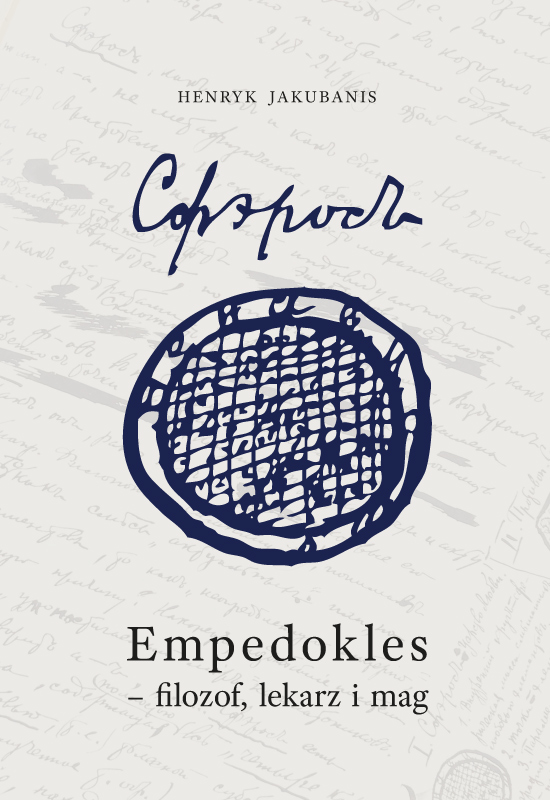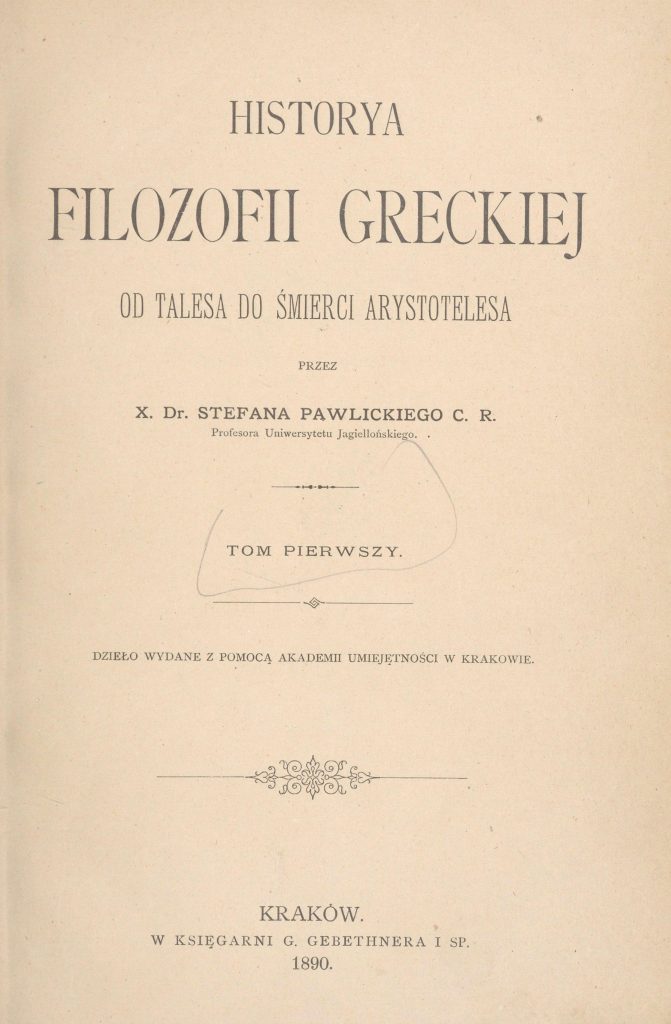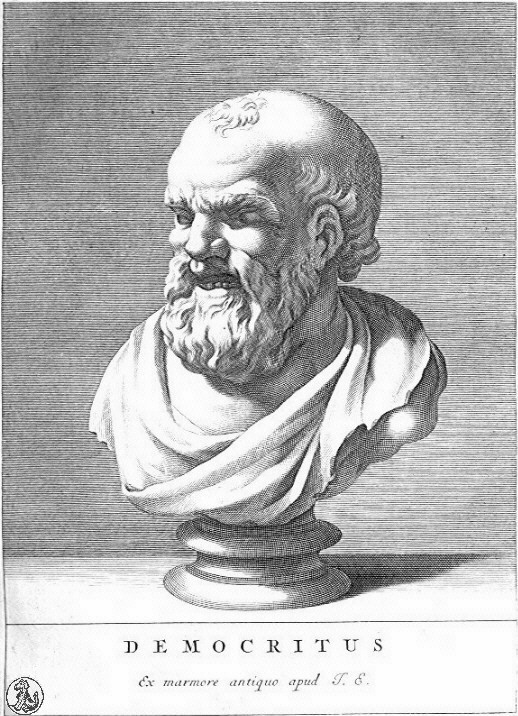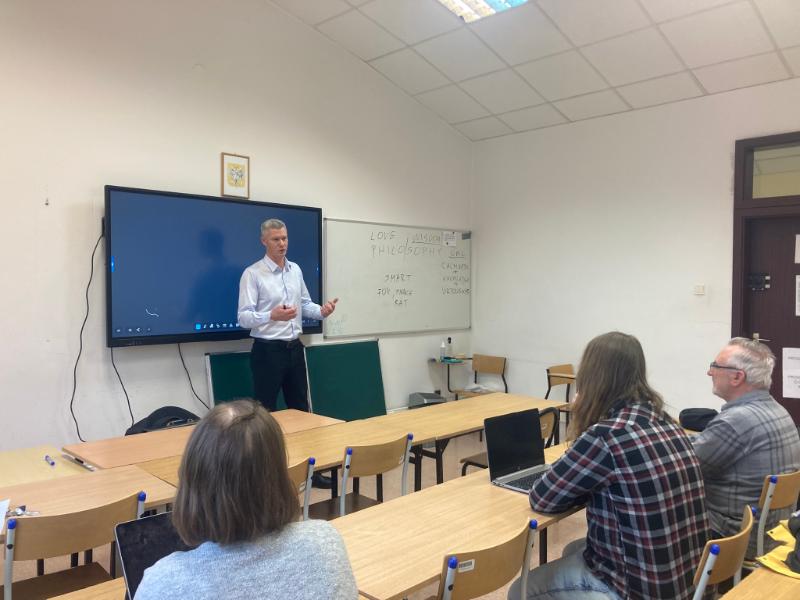Home » Posts tagged '2025'
Tag Archives: 2025
H. Jakubanis’ Empedocles in OA

Last year we announced publishing Polish translation of a Russian study by Henryk Jakubanis (1879-1949), originally published in Kyiv over a century ago, Empedocles: a Philosopher, a Doctor and a Magus, therefore there is no need to repeat all the information here. Suffice to say that the text was translated by Mariam Sargsyan and Adrian Habura, and the whole volume ends with an afterword by Katarzyna Kołakowska, a contemporary Polish expert on Empedocles.
The book can be purchased on the publisher’s website here. We are now, however, glad to inform that it is available in OA, via online repository of the University of Zielona Góra.
Stefan Pawlicki on Greek Concepts of Human Soul
On March 15th-16th 2025 the first conference of the Academic Club for Ancient Philosophy (Koło Naukowe Filozofii Starożytnej) at the University of Warsaw took place. This academic event was organised by young enthusiasts of ancient thought and gathered scholars from various Polish universitites, and students interested generally in the topic of body and soul or in the subjects of individual papers, the list of which can be found here.
AΦR, naturally, was present at the conference. Tomasz Mróz delivered a paper titled Stefan Pawlicki on the concepts of soul in Greek philosophy. Pawlicki (1839-1916) was once in his career a professor of philosophy in Warsaw, but Mróz’s paper was focused on mature period of his career, when he was a respected professor in Cracow and the author of History of Greek Philosophy. Volume I of this book appeared in print in 1890 (front page on the right) and was the first Polish handbook for ancient philosophy, while the volume III, meant to be devoted to Aristotle, was not finished by the author.

Pawlicki was an admirer of Plato, but instead of presenting well-known opinions of Pawlicki on Plato, Mróz discussed Pawlicki’s criticism of the pre-Socratic thinkers. Pawlicki was a historian of philosophy who aimed not only to provide the readers with an account of the ideas of Greek thinkers, but considered the needs of the Polish reading audiences and supplemented his discussion of the Greeks with assessments and evaluations presented from the Catholic standpoint.

One of Pawlicki’s methods was to draw far reaching conclusions from the fragments of the pre-Socratic thinkers, especially materialist philosophers like Democritus, and then present them as unacceptable. For example, he stressed pantheist traces in Heraclitus and pessimism of Democritus, while at the same time he seemed to appreciate the concept of reincarnation and Pythagorean ethics, as encouraging human beings to improve themselves.
His arguments against most of the Greek concepts of human soul allow to structure them in order of perfection, starting with Aristotle (whom Pawlicki did not manage to present), followed by Plato and Socrates, with Pythagoreanism below, and ending with Heraclitus and Democritean materialism, which was – just like 19th century materialists – a constant subject of Pawlicki’s critical remarks.
Ancient Wisdom in a Lithuanian Interpretation
Connections between Ancient Φilosophy Reception research group at the University of Zielona Góra and the scholars of Vilnius University have been many times documented on this website. This time we want to report on an Erasmus+ teaching visit of a Lithuanian scholar, Mindaugas Stoškus from Vilnius, in the Institute of Philosophy (UZ). He was our guest between 10th and 14th of April.
Among dr Stoškus’ teaching acitivities, there was a lecture titled:
What Can We Learn from the Ancient Concept of Wisdom?

This lecture was delivered twice, during the classes of Philosophical Counselling (above on the photo by A. Habura) and on the course of the History of Ancient Philosophy. At the beginning of his lecture, Dr. Stoškus discussed etymological issues, focusing on the very notion of wisdom. The he took an attempt to enumerate the attributes of the wise man, as the Greeks saw them. They included, for example, knowledge, experience, ability to justify judgments, and desire to disseminate wisdom. Dr. Stoškus discerned philosophical wisdom from its sophistic version and, in conclusion, emphasised the essential connection between theory and practice of wisdom.
Greek philosophy still fares well!
Recent commentaries